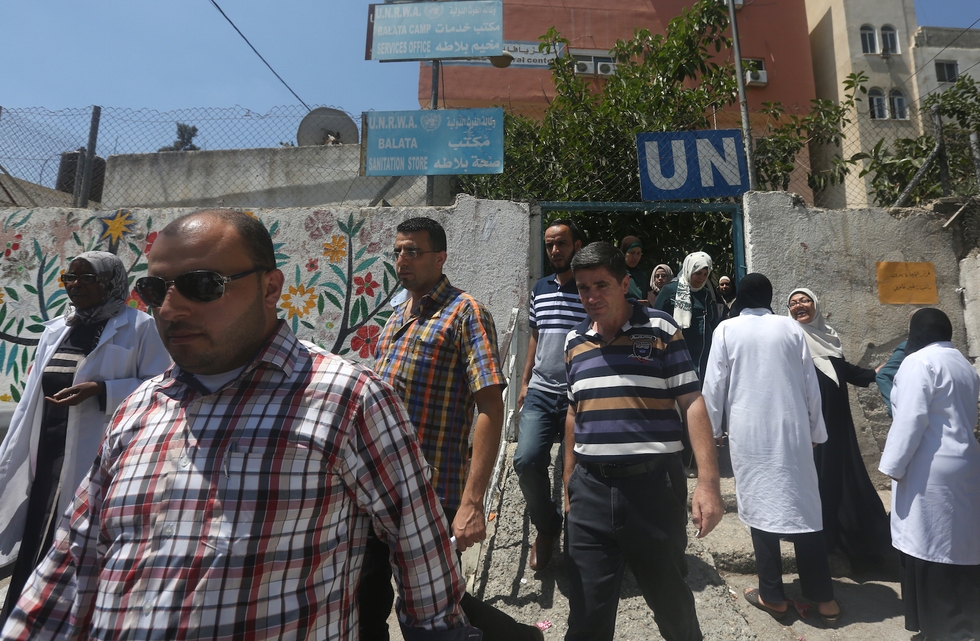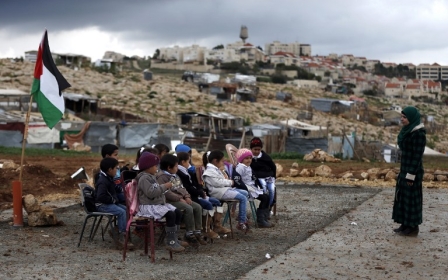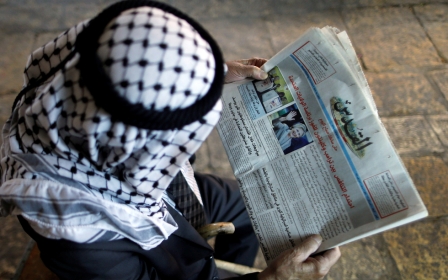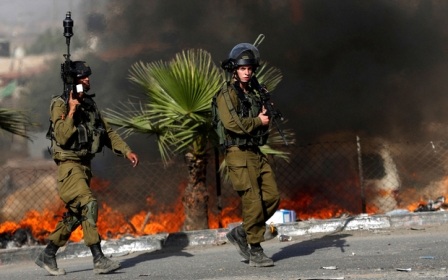UN envoy warns West Bank camp could 'explode'

The UN's top official on the Israeli-Palestinian peace process said Monday he was concerned the West Bank's largest refugee camp could "explode" if intra-Palestinian clashes worsen, during a rare visit to the Balata camp.
In what his officials said was the first visit in "years" by a top UN official to the camp near Nablus in the northern West Bank, Middle East peace envoy Nikolay Mladenov met with civil society figures and politicians including those believed to be opposed to Palestinian President Mahmoud Abbas.
Balata has seen an uptick of violence in recent weeks, with Palestinian security officials attempting a series of raids to capture alleged criminals in the camp - leading to gunbattles.
Analysts say Abbas sees the camp as a base for support for his political rival Mohammed Dahlan, who is currently in exile in the United Arab Emirates.
Mladenov said he had visited the camp to send a message that the "international community is watching" the situation on the ground.
"If you forget about these communities, they will explode," he said in an interview with AFP.
Balata, where 30,000 people live in 25 hectares, is the largest Palestinian refugee camp in the West Bank and played a key role in previous Palestinian intifadas, or uprisings, against Israel.
The lives of residents have worsened as the camps have been left behind economically compared with major Palestinian cities, said Mukhaimer Abusada, professor of politics at Azhar University.
"Dahlan, who is the main competitor against Abu Mazen, has exploited the situation in the camps by offering some assistance to those in the camps," said Abusada.
Dahlan, Fatah's former strongman in Gaza, was expelled from the party in 2011 but is now believed to have strong support in a number of key Arab states in the battle to replace Abbas, who is 81 and has been in power 11 years.
Mladenov met with local civil society leaders and teachers and also the camp's Popular Committee - a political leadership body - in a meeting closed to the media.
Abusada said a number of the committee’s members were believed to be allied to Dahlan.
Mladenov stressed the UN was not interfering in Palestinian politics but was trying to stop political differences crossing "over into an environment that becomes violent in which Palestinians stand against other Palestinians with weapons".
"Our role is to be able to talk to everyone and to send everyone a very clear message that violence is not the answer."
He added the UN remains supportive of Abbas's efforts to bring a peaceful resolution to the conflict.
"Abu Mazen is the person most committed to non-violence and a peaceful resolution. If he is undermined that will affect the Palestinian cause," he said, using the Arabic nickname for Abbas.
In the run-down camp residents were wary of talking politics but one who did not want to be named said the Abbas-run Palestinian Authority was deeply unpopular.
Jewish settlement legalisation
The warning comes as Palestinian leaders attacked Israeli plans to legalise Jewish settlements built on private Palestinian land, according to agency reports, and said they intend to take the issue up with the United Nations.
"The recent Israeli measures are going to lead to catastrophe in the region," said Nabil Abu Rudeina, spokesman for Abbas
"The Palestinian leadership will turn to the UN Security Council and all other international organisations to stop those Israeli measures."
Palestinian foreign minister Riad al-Malki added that the Israeli government was seeking to "impose facts on the ground and create new realities by legalising the illegal actions that it commits".
Israel's ministerial committee for legislation approved a draft bill on Sunday, aimed at legalising wildcat Jewish settlements built on private Palestinian land, parliamentary sources said.
Prime Minister Benjamin Netanyahu also backed a bill limiting the volume of calls to prayer from mosques, a proposal government watchdogs have called a threat to religious freedom.That bill was also denounced by the Palestinian authority.
The settlement bill must pass through three readings in parliament and also be ratified by the supreme court before it can become law.
The vote was rushed through the ministerial committee in an attempt to prevent the evacuation of the Jewish settlement of Amona in the Israeli-occupied West Bank by the end of the year.
But Israel's high court rejected on Monday the government bid to delay the evacuation of the Amona settlement in the occupied West Bank beyond a 25 December deadline.
Amona is home to about 40 families - who right-wing politicians have called on to remain - and was built on land privately owned by Palestinians, who have petitioned the court for the outpost to be removed.
"The evacuation must occur before December 25," the court said in its ruling. "The court rejects the delay requested by the state."
In what seemed to be a sharp criticism of the government, it further said that "the duty to obey rulings is not a matter of choice.
"It is an essential component of the rule of law to which all are bound as part of the values of the state of Israel as a Jewish and democratic state."
The international community considers all Israeli settlements in Israeli-annexed East Jerusalem and the occupied West Bank to be illegal, whether they are authorised by the government or not.
They are also seen as a major stumbling block to peace efforts as they are built on land the Palestinians see as part of their future state.
This article is available in French on Middle East Eye French edition.
New MEE newsletter: Jerusalem Dispatch
Sign up to get the latest insights and analysis on Israel-Palestine, alongside Turkey Unpacked and other MEE newsletters
Middle East Eye delivers independent and unrivalled coverage and analysis of the Middle East, North Africa and beyond. To learn more about republishing this content and the associated fees, please fill out this form. More about MEE can be found here.




